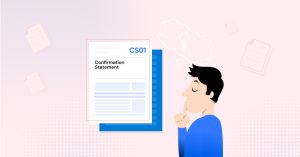What is PIP?
Before we dive into the specifics of the rates and eligibility, let's first understand what PIP is. Personal Independence Payment (PIP) is a benefit provided by the Department of Work and Pensions (DWP) to help individuals who have long-term health conditions or disabilities.
This financial assistance is designed to cover extra costs associated with these conditions, making it easier for claimants to manage their daily lives.
PIP is divided into two main components: daily living and mobility. Each component has two rates—standard and enhanced—depending on the severity of the claimant's condition. The goal is to offer tailored support that meets the unique needs of each individual, ensuring they can live as independently as possible.
PIP Rates for 2024
PIP rates are reviewed annually, and changes can significantly impact claimants. For 2024, the rates are as follows:
- Daily Living - Standard Rate: £72.65 per week
- Daily Living - Enhanced Rate: £108.55 per week
- Mobility - Standard Rate: £28.70 per week
- Mobility - Enhanced Rate: £75.75 per week
These rates are designed to offer financial support tailored to the claimant's needs. For example, individuals with terminal illnesses automatically qualify for the highest daily living rate, ensuring they receive the maximum support possible.
Who Can Claim PIP?
Eligibility for PIP is determined by several factors, including age, health condition, and how the condition affects your daily life. To claim PIP, you must be aged 16 or over and usually have not reached State Pension age. However, there are exceptions, especially for those with terminal illnesses or who have reached the maximum pension age. (66 years old as of 2024)
Age Requirements
To be eligible for PIP, you must be at least 16 years old and usually below State Pension age. If you're above State Pension age you can claim an Attendance Allowance, you can continue to do so as long as you meet the eligibility criteria.
Health Conditions
PIP is intended to help people with long-term health conditions or disabilities. These conditions must affect your ability to perform daily activities or mobility for at least 3 months and are expected to affect you for a further -at least- 9 months.
Examples include physical disabilities, mental health issues, and terminal illnesses. The severity of the condition will determine whether you qualify for the standard or enhanced rate.
How the Condition Affects You
To qualify for PIP, your condition must impact your ability to perform daily tasks such as cooking, dressing, or getting around. The extent of this impact will be assessed through a series of questions and possibly a medical examination, ensuring that the support you receive is tailored to your specific needs.
The Location
You must have been living in the UK, Guernsey Islands or the Isle of Man for at least 2 years before your claim.
How Does PIP Work?
As mentioned above, PIP has two main components, daily and mobility. Those who require assistance with routine activities and individuals who need assistance with transportation, respectively. Pip's claim varies depending on these factors.
Your eligibility for either or both of these components and the amount you receive will be determined by the level of difficulty you encounter in carrying out daily tasks and moving around.
Daily Living Component
You may qualify for the daily living portion of PIP if you need assistance with:
- meal preparation
- nutrition intake
- managing treatments or monitoring health conditions
- personal hygiene and bathing
- dealing with toilet needs or incontinence
- clothing yourself
- oral communication
- comprehending signs, symbols, and words
- interacting with others in person
- making financial decisions
Mobility Component
You may qualify for the mobility portion of PIP if you need help with:
- route planning and execution
- physical movement
Physical impairment is not the only grounds for receiving the mobility element. If you experience difficulty in moving around due to a cognitive or mental health condition, such as anxiety, you may also qualify.
PIP is unaffected by income or savings, is not subject to tax and can be received regardless of employment status.
How to Claim PIP
Claiming PIP involves several steps, but understanding the process can make it much more manageable. Here's a quick guide to help you get started:
Step 1: Initial Application
To begin your PIP claim, you'll need to contact the DWP and request a claim form. This can be done online, over the phone, or by mail. Be prepared to provide basic information about yourself, including your National Insurance number and bank details.
Step 2: Fill Out the Form
Once you receive the form, you'll need to fill it out with detailed information about your condition and how it affects your daily life. Be as thorough as possible, as this information will be used to assess your eligibility and the rate you qualify for.
Step 3: Submit the Form
After completing the form, submit it to the DWP along with any supporting medical documentation. This documentation can include doctor's notes, medical records, and any other relevant information that supports your claim.
Step 4: Attend the Medical Examination
If required, attend the medical examination scheduled by the DWP. This examination will help determine the severity of your condition and the appropriate rate for your PIP claim.
Step 5: Await the Decision
Once all the necessary information has been gathered, the DWP will review your claim and make a decision. If approved, you'll start receiving payments based on the rate you've qualified for.
Additional Support for PIP Claimants
In addition to the financial support provided by PIP, there are several other resources available to help claimants. These include:
- Disability Living Allowance (DLA): For children under 16 who have difficulty walking or need more help than a child of the same age.
- Attendance Allowance: For those over State Pension age who need help with personal care due to a physical or mental disability.
- Carer's Allowance: For those who spend at least 35 hours a week caring for someone receiving certain benefits, including PIP.
These additional resources can provide further financial assistance and support, making it easier to manage the challenges associated with long-term health conditions and disabilities.
Common Questions About PIP
What is the Maximum PIP Payment I Can Receive?
The maximum PIP payment you can receive depends on the rate you qualify for. For 2024, the maximum weekly payments are £108.55 for daily living and £75.75 for mobility.
How Often Are PIP Payments Made?
PIP payments are typically made every four weeks, directly into your bank account. This ensures a steady flow of financial support to help manage the costs associated with your condition.
Can I Appeal a PIP Decision?
Yes, if you're unhappy with the decision made by the DWP, you have the right to appeal within 1 month of the date of the decision. The first step is to request a mandatory reconsideration, which involves the DWP reviewing the decision. If you're still not satisfied, you can take your appeal to an independent tribunal.
Conclusion
Understanding PIP rates and eligibility for 2024 is crucial for anyone dealing with long-term health conditions or disabilities. By familiarizing yourself with the application process and the support available, you can make informed decisions about your financial future. Remember, PIP is designed to help you live as independently as possible, providing the financial assistance you need to manage your condition effectively.
If you have any questions or need further assistance, don't hesitate to reach out to the DWP or consult with a professional who can guide you through the process. Your health and well-being are worth the effort, and PIP can make a significant difference in your quality of life.













